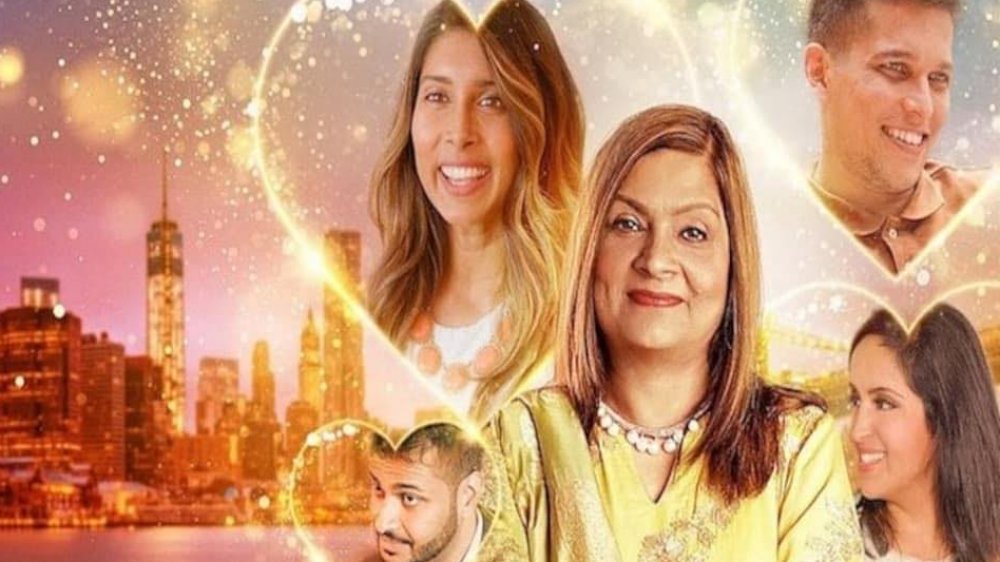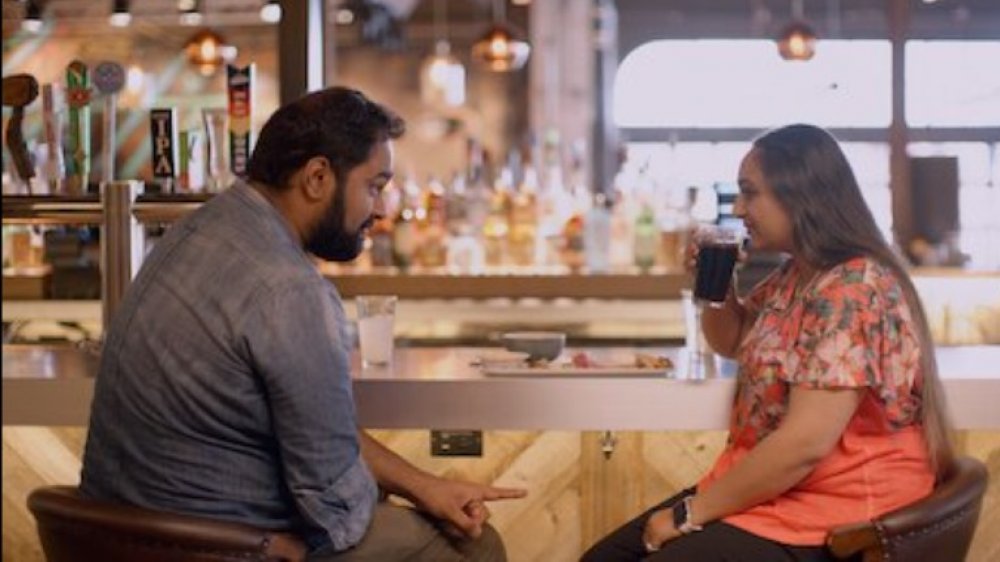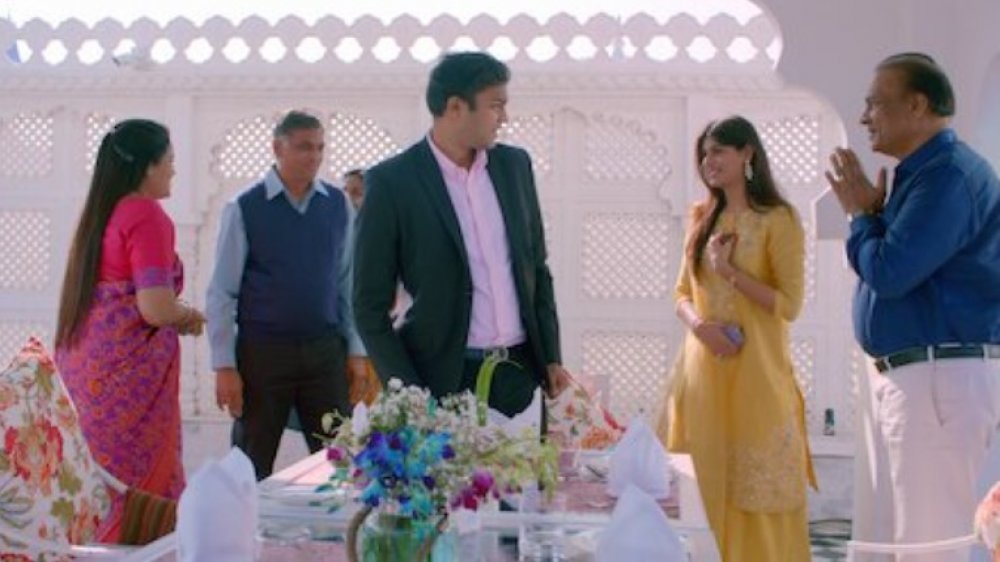The Truth About Netflix's Indian Matchmaking
Netflix's latest reality romance hit, Indian Matchmaking, showcases something with which many of us in this country may not be too familiar — the arranged marriage culture that is still prevalent in some parts of the world, including India. While the main character, Sima Taparia ("Sima Aunty") is based in Mumbai, she travels the world to help those of Indian descent make their perfect match (via The Independent). Not everyone in the Indian community today is sold on the whole arranged marriage concept, but this show is still immensely popular, with journalist Namitha Aravind calling it "our Tiger King." Even non-Indians can relate to the usual relationship awkwardness complicated by over-involved families.
The show gives those of us unfamiliar with the matchmaking concept an intriguing glimpse into how the process plays out as Taparia meets with clients (and often their parents) to discuss their criteria, select potential mates, and plan out the entire dating campaign. Still, none of the marriages are truly "arranged" in that it is ultimately up to each couple to decide whether or not they want to go through with the match (or, perhaps, break up a week after their episode wraps, a la The Bachelor). Even with this element of free choice, however, the show is not without its share of controversy.
Indian Matchmaking has raised some disturbing issues
One of the main problems many viewers have with Indian Matchmaking is what CNN Style describes as its "colorism." What they mean by this is, while all of the participants are of the same ethnicity, most of the men and women seeking their perfect match are expressing a desire for someone with a light skin shade. Sadly, this attitude may be somewhat prevalent throughout Indian society (as eslewhere), with the darker-skinned being discriminated against in a society where paler skin is associated with beauty and status.
Another uncomfortable truth revealed by the show is that sexism is still tolerated to a greater extent than it perhaps should be, with the women contestants being told that they may need to compromise their ideals and be less devoted to their careers if they want to catch a man. The male contestants are given no such advice, and instead a man who's willing to tolerate a working wife is seen as more of an admirable exception than the expected norm.
It's about as real as any other kind of reality show
Aravind also points out that the show hardly presents a microcosm of Indian society, as it does not feature any Muslim or LGBTQ couples, although these two groups may be sadly underrepresented in US-based reality TV, as well. Also left out are the economically underprivileged, as they are less apt to be able to afford the services of a matchmaker. But then, reality TV always does skew more heavily towards the lives of the rich and famous and Real Housewives of wherever rather than the actual reality experienced by McDonald's cashiers and Amazon delivery drivers.
So should you be watching Indian Matchmaking if you want to gain some perspective on life in today's Indian community at home and abroad? No, of course not, no more than RHOBH will teach you about how the average Californian lives or Breaking Amish will provide real insight into the practice of the religion. Still, you may want to watch it for the entertainment value alone — Aravind tweets that the show is "trashy, hilarious, and problematic," which is exactly what we're looking for when it comes to reality TV.


